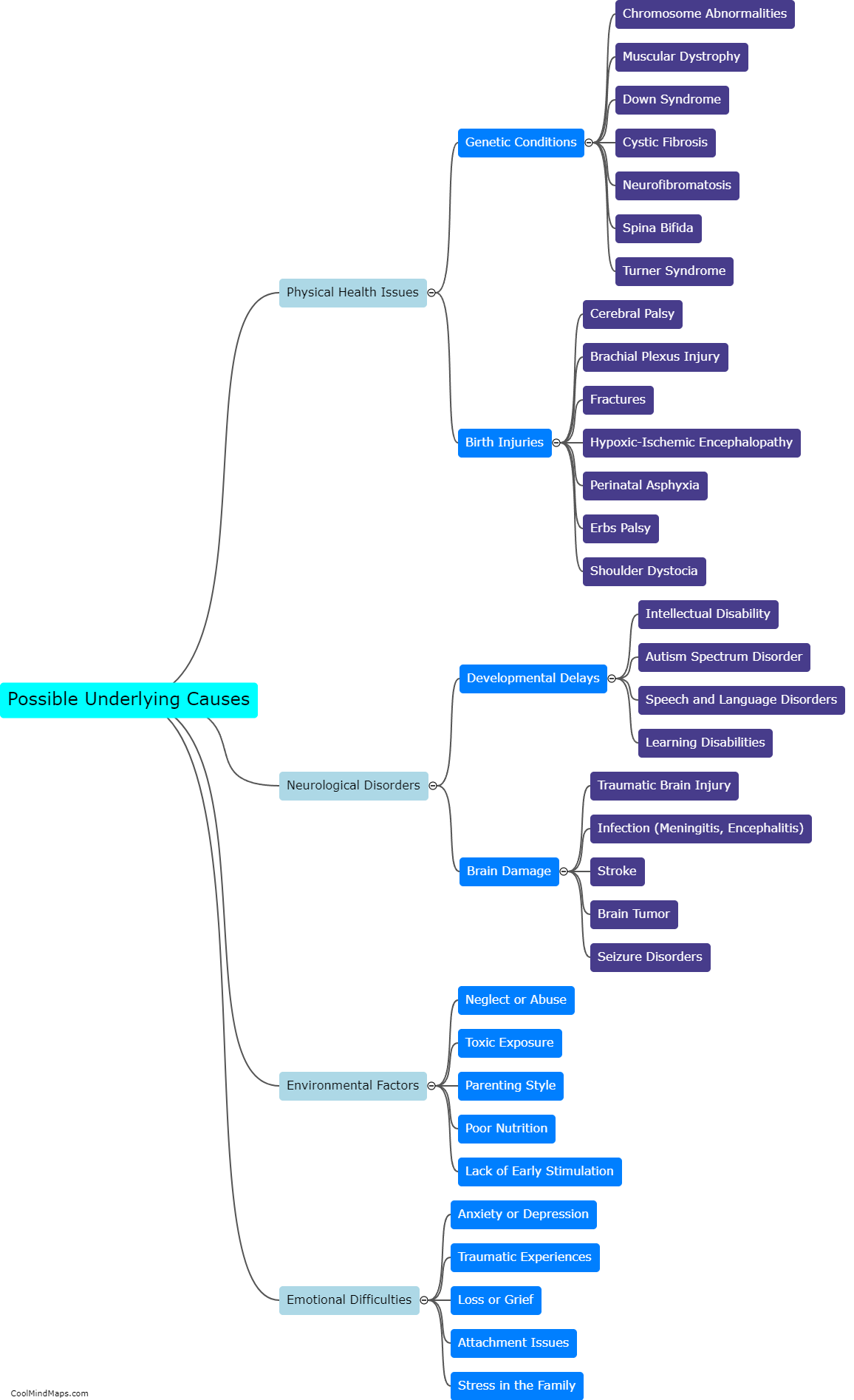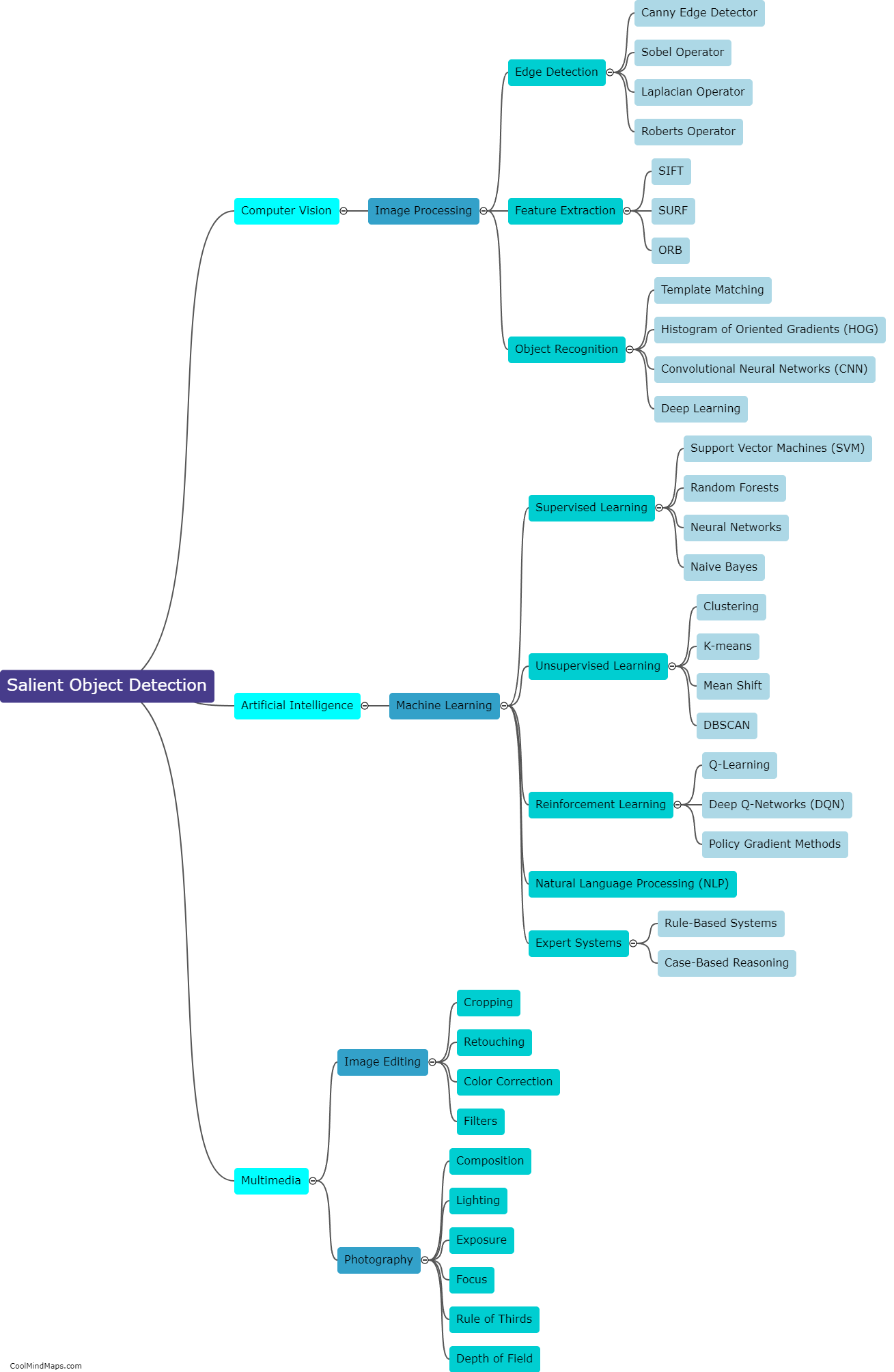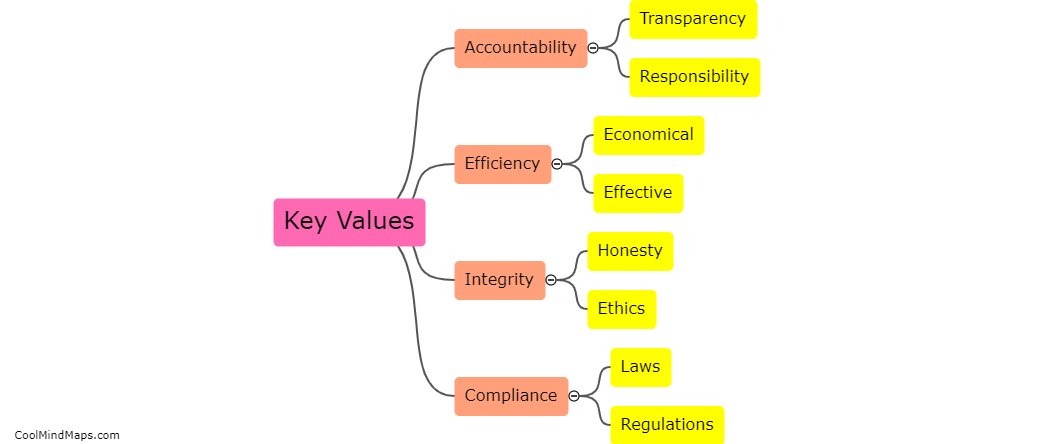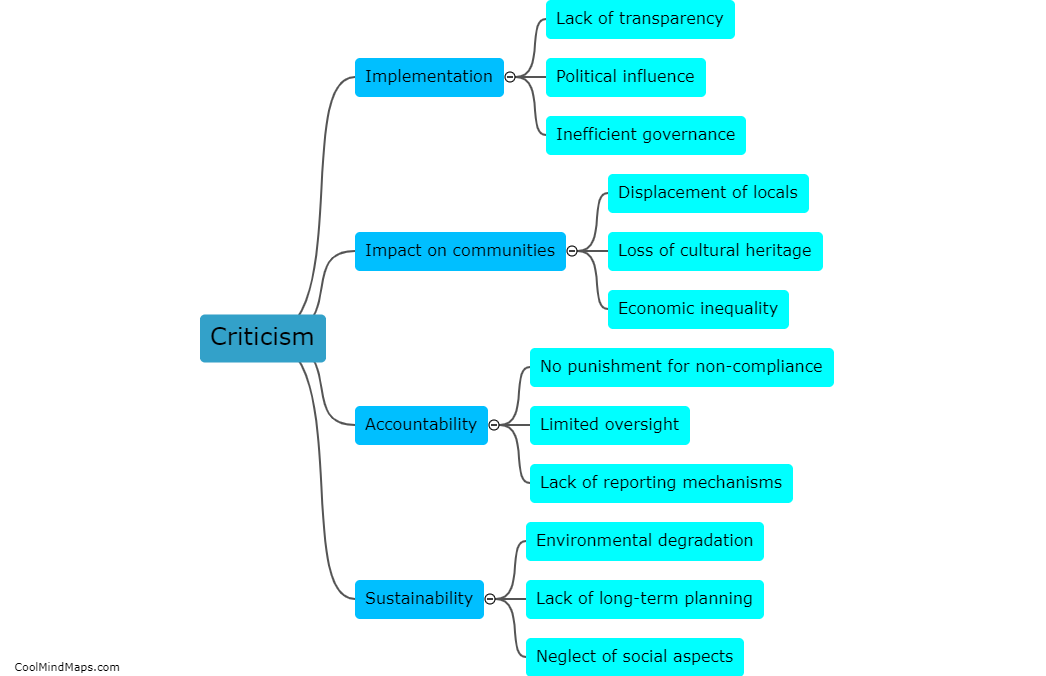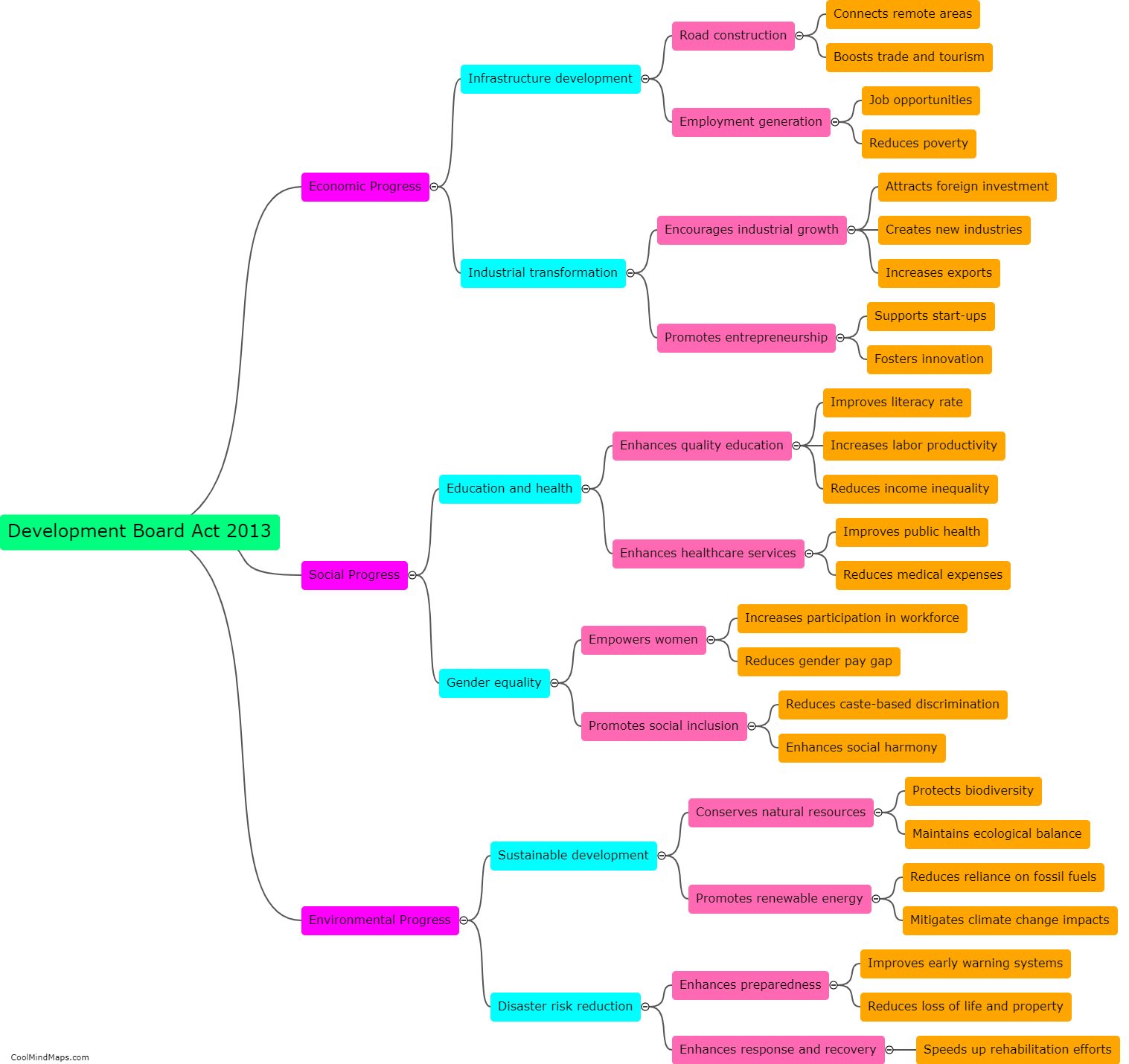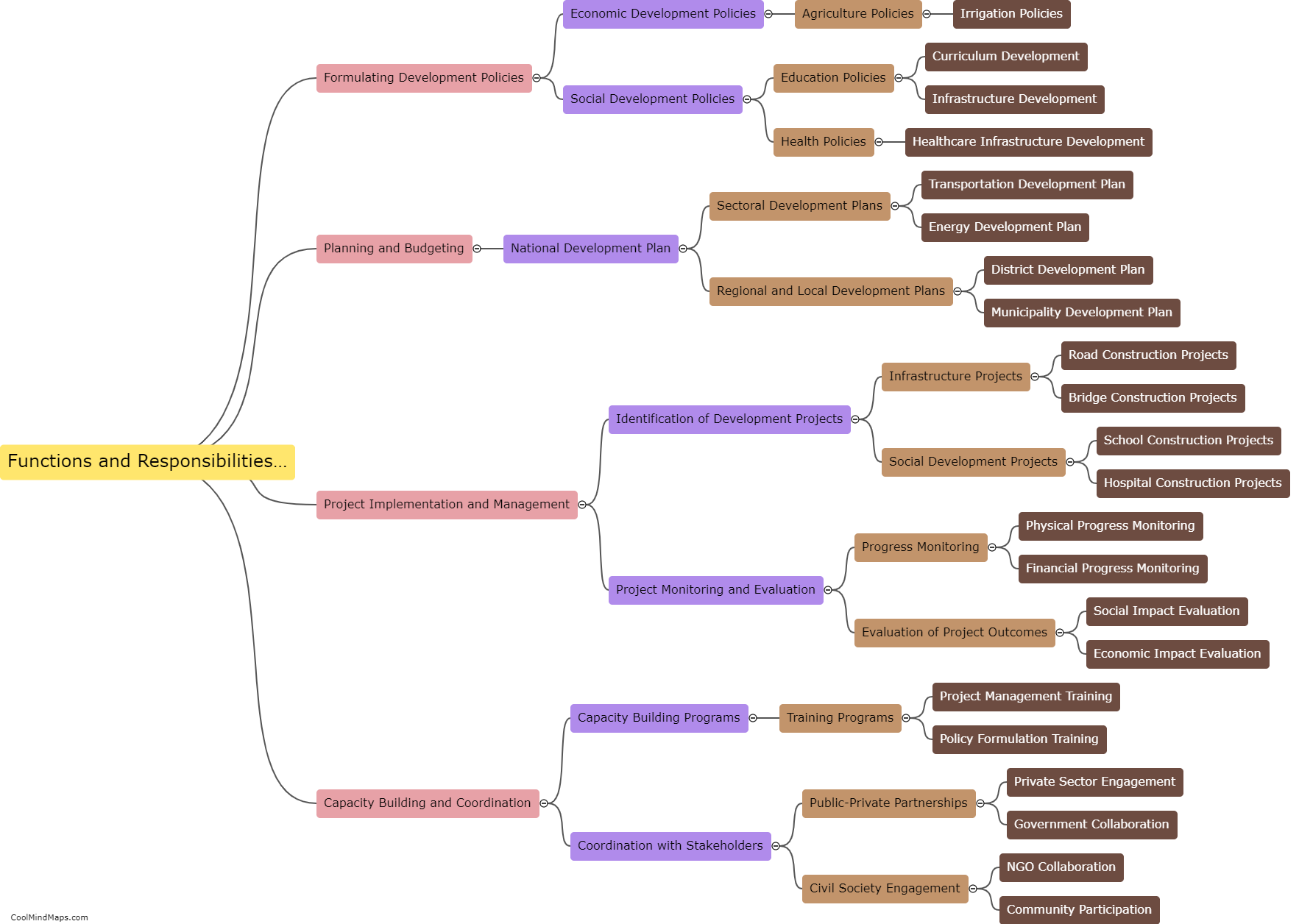What are the key provisions of the Development Board Act 2013?
The Development Board Act of 2013 is a legislation that aims to oversee and facilitate the development and progress of specific regions or areas within a country. The act outlines key provisions including the establishment of development boards, which are responsible for planning, implementing, and monitoring development projects. The boards are empowered to allocate funds, resources, and investments to support various sectors such as infrastructure, agriculture, education, and healthcare. The act also defines the composition and functions of the boards, which typically consist of representatives from different stakeholders including government officials, business leaders, and community members. Additionally, the act emphasizes the importance of transparency, accountability, and community participation in the decision-making process of development projects. Overall, the key provisions of the Development Board Act of 2013 serve to promote sustainable and equitable development in targeted regions.

This mind map was published on 28 November 2023 and has been viewed 117 times.


